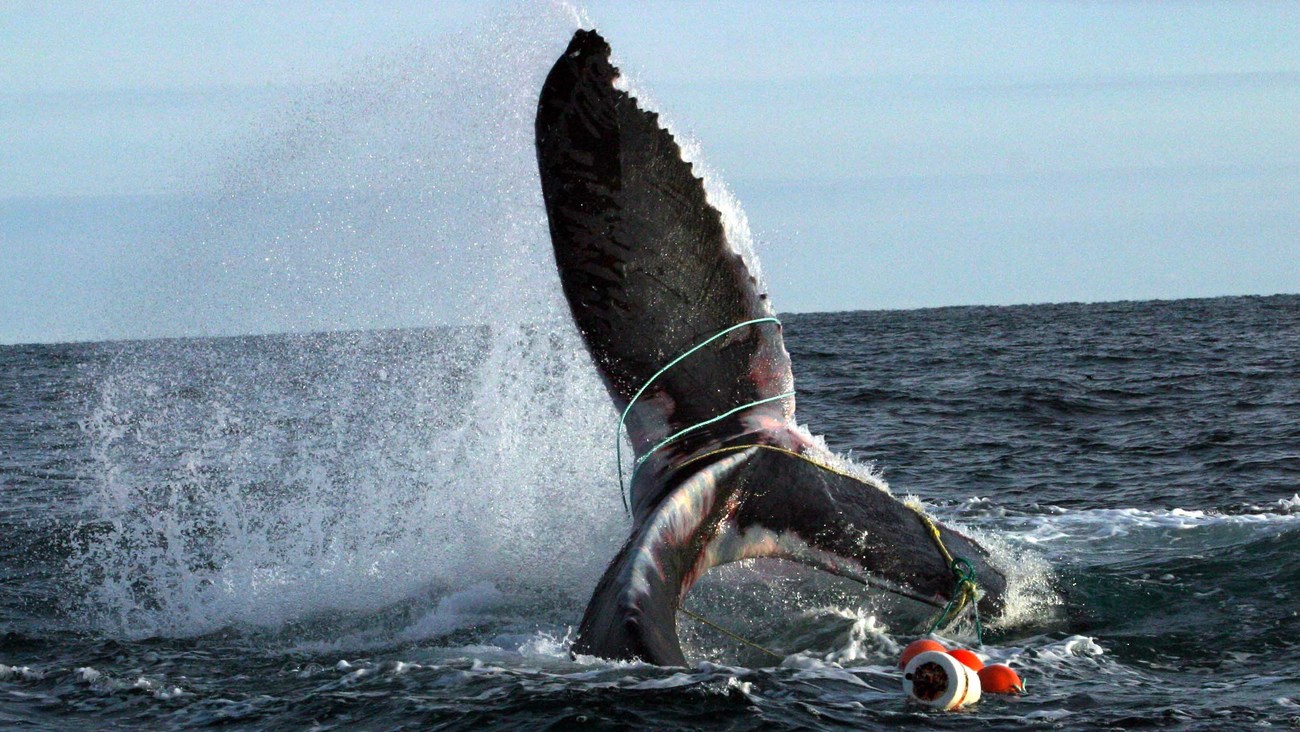Updates
How IFAW has helped animals and people during the Ukraine crisis
Learn moreDr. Jane Goodall and NGOs launch 50-year vision to save whales and dolphins

LONDON (30 November 2021) – Dr. Jane Goodall DBE, UN Messenger of Peace, joined with many of the world’s leading animal protection and conservation organisations to urge the 88 member countries of the International Whaling Commission to adopt a new 50-Year Vision to save whales, dolphins and porpoises (collectively known as ‘cetaceans’) from extinction in the face of increasing ocean threats.
The coalition of NGOs including the Animal Welfare Institute, Humane Society International, Born Free Foundation, OceanCare, IFAW and Environmental Investigation Agency, launched the 50-Year Vision at a virtual event, to mark the 75th anniversary of the International Whaling Commission (IWC). Originally established in 1946 to conserve whales in order to maximise hunting quotas, the IWC has since evolved to address myriad anthropogenic threats to cetaceans that pose an immediate danger for many populations.
Giving the keynote speech, Dr. Jane Goodall DBE said: “Some 80% of the world’s oxygen comes from the ocean. Our seas, along with our forests, are literally the lungs of our planet. Tragically, the vast marine habitat is increasingly threatened by our human actions. We are polluting it with toxic substances, large areas become acidified, the water is warming, commercial fishing has endangered many species, and its biggest and so loved residents – whales, dolphins and porpoises - are suffering.
Unbelievably, despite a 40 year ban, many still suffer the cruelty of commercial whaling. Then around 300,000 cetaceans die when they’re accidentally captured in fishing gear. They drown. A number of species and some populations are now facing extinction. There are solutions, but our governments must prioritise them and also recognise and support the International Whaling Commission as the organisation to coordinate these global priorities.
Today, as we celebrate the IWC’s milestone anniversary, I urge its members to ensure that the IWC is at the centre of all global efforts to address all threats to whales and dolphins. For the sake of these incredible animals, for the sake of the next generation who care so deeply about our planet, and for the health of the precious ocean upon which we all rely, we must not fail.”
The Vision (supported by more than 50 NGOs worldwide) calls on the IWC and its 88 member countries to ensure that conservation urgency is at the centre of global efforts to save cetacean species from decline. It warns that the degradation of the ocean has accelerated rapidly in recent years, with ocean temperatures warming up to 40% faster on average than the Intergovernmental Panel on Climate Change previously estimated, and more than 150 million tonnes of plastics have accumulated in the ocean since the 1950s. Ocean acidification has also increased by 26% since pre-industrial times, global maritime traffic has vastly increased, as have ambient noise levels from shipping, seismic surveys, exploration and military activities. An estimated 300,000 cetaceans are killed annually as bycatch in fisheries. These challenges are compounded by the loss of critical habitat to climate change.
The NGOs believe the IWC’s 75th anniversary provides the perfect opportunity ahead of its 68th meeting in October 2022 to define a clear 50-year Vision that goes beyond managing whaling and establishes the IWC at the centre of global efforts to conserve all cetaceans.
The Vision outlines that, looking forward, the IWC’s priorities must be focused on conservation, and recommends it specifically to:
Every problem has a solution, every solution needs support.
The problems we face are urgent, complicated and resistant to change. Real solutions demand creativity, hard work and involvement from people like you.
Unfortunately, the browser you use is outdated and does not allow you to display the site correctly. Please install any of the modern browsers, for example:
Google Chrome Firefox Safari